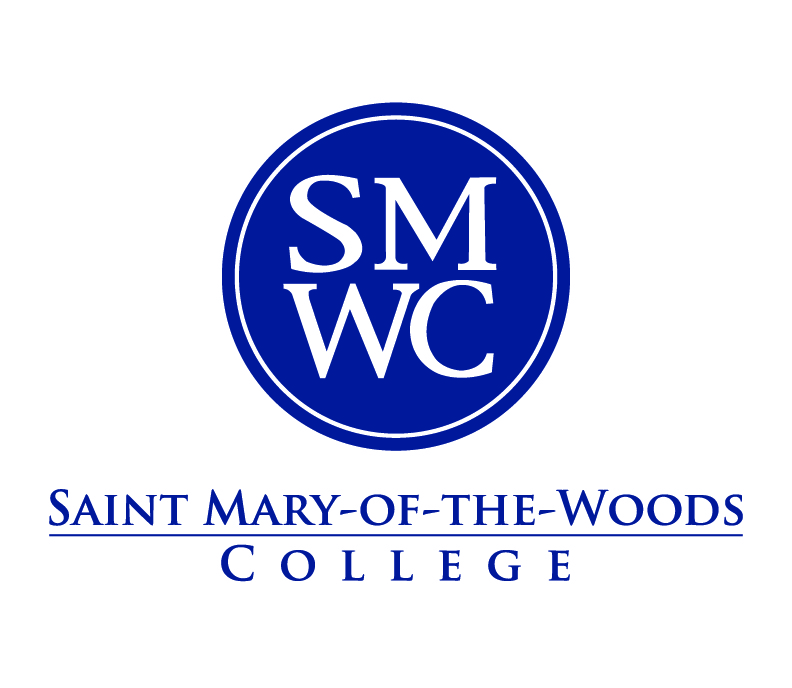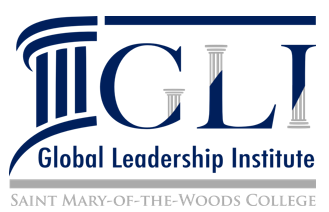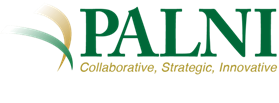Submissions
Submission Preparation Checklist
As part of the submission process, authors are required to check off their submission's compliance with all of the following items, and submissions may be returned to authors that do not adhere to these guidelines.-
COVER LETTER: Highlight to the journal editor what makes your research compelling, new, or impactful to the field of global leadership.
*Author Information
*Type of Submission
*Significance to the Journal's scope,
* 5-6 keywords (although the system will prompt you for this too)
*Statement you have authority to represent your co-authors (if applicable)
*Statement of original research - WORD FILE: The submission file is in Microsoft Word. Written in English. A template is available.
- URLs & DOIs: Where available, URLs for the references have been provided.
- FORMAT: The text is single-spaced; uses a 12-point font; employs italics, rather than underlining (except with URL addresses); and all illustrations, figures, and tables are placed within the text at the appropriate points, rather than at the end.
- Use APA 7TH EDITION: The text adheres to the stylistic and bibliographic requirements outlined in the Author Guidelines.
Articles
Regular full-length submissions of 6,000 words to 12,000 words with author-created infographics and multimedia are encouraged. Authors should clearly elaborate on how the contribution impacts globally. Abstracts are limited to 250 words. Authors should use APA 7th edition format. Articles are double-blind and peer-reviewed. In general, articles could encompass global organizational leadership including theory building, strategy, organizational behavior, employment changes, human capital, cultural and global mindset, cultural intelligence, action projects for positive change, ethics, diversity and inclusion, technology for good, learning and development, global equine business and leadership, case development, leveraging strengths for decision-making, or healthcare leadership including therapeutic studies.
Research Article Template-April Revision
Editorial Process - Articles
Submissions that pass the preliminary and editorial board review are then subject to peer review from two (or more) peer reviewers. Here are the steps.
EP Process 1: Check the similarity
Editor (or editorial assistant) checks for similarity. All essays or perspectives containing plagiarism, including self-plagiarism are rejected. APA policy states that aurthors are responsible for accuracy of any information in their article. AI tools may be used, but authors should verify content and disclose and cite the use AI content responsibly.
EP Process 2: “Fit” check
Editorial board member(s) check for fit to the journal’s aim and scope. Manuscripts that do not align with the journal’s scope will be rejected.
EP Process 3: Peer Review
For articles, the journal uses a double-blind system for peer review. For Cases and Critical Essay & Perspectives, the journal uses a single-blind system for peer review. Editors will remove author information before sending it to peer reviewers. Submissions are assessed for clarity, rigor, analysis, validity, and impact on Global Leadership. A broad range of methodologies will be considered – qualitative, quantitative, mixed research methods, evaluation studies, and action research. Articles crafted from dissertations should provide evidence of promising practices, new models, or insights. The review process may take four to six weeks.
Upon completion of the review process (4-6 weeks), the main author of the article will receive an evaluation result as follows:
- Accepted
- Accepted with revisions
- Rejected
EP Process 4: If revisions
If the article is accepted with revisions, the editorial board assigned will re-review the manuscript for corrections and/or revisions. The author has two weeks to re-submit.
EP Process 5: Final proof
It is possible that the editors will move tables, and re-arrange images or infographics for best reading practices. The main author will receive a notification of the “proofs” when ready. This will allow you to eliminate errors introduced during the proofing process. Do not make significant changes without permission from the editor(s).
Author Agreement Contract:
Authors (represented by the main author) must warrant that the manuscript is original work, that you have rights to the work, and have obtained permission for any copyrighted work (i.e., infographics not developed by the author). Articles should not have been published elsewhere. Authors who have an accepted article must indicate any conflicts of interest or funding.
Critical Essays & Perspectives
Besides regular full-length submissions, Αρετή publishes case studies, perspective-taking essays, and critical essays that contribute to the conversation regarding a problem or issue. Critical essays and perspectives are a 2,000 words - 5,000 words and are related to a change in policy and incorporate a challenge or debate positions. Abstracts are limited to 250 words. Essays may identify a theme or special topic that is sufficiently compelling to the field of global leadership. Authors should use APA 7th edition format. Critical essays & perspectives are double-blind and peer-reviewed.
Critical Essay & Perspective Template -April Revised
Editorial Process - Critical Essays & Perspectives
Submissions that pass the preliminary and editorial board review are then subject to peer review from two (or more) reviewers. Here are the steps:
EP Process 1: Check the similarity
Editor (or editorial assistant) checks for similarity. All essays or perspectives containing plagiarism, including self-plagiarism are rejected. APA policy states that aurthors are responsible for accuracy of any information in their article. AI tools may be used, but authors should verify content and disclose and cite the use AI content responsibly.
EP Process 2: “Fit” check
Editorial board member(s) check for fit to the journal’s aim and scope. Essays or perspectives out of the journal’s scope are rejected.
EP Process 3: Peer Review
For critical essays & perspectives, the journal uses a double-blind system for peer review. Submissions are assessed for clarity, rigor, analysis, validity, and impact on Global Leadership. A broad range of essay styles will be considered. Authors should compare different attitudes and or interpretations that nurture further debate. Critical essays & perspectives can be crafted from dissertations and should provide evidence of promising practices, new models, changing attitudes, or insights. The review process may take four to six weeks. Upon completion of the review process (4-6 weeks), the main author of the critical essay & perspective will receive an evaluation result as follows:
- Accepted
- Accepted with revisions
- Rejected
EP Process 4: If revisions
If the critical essay & perspective is accepted with revisions, the editorial board assigned will re-review the essay for corrections and/or revisions. The author has two weeks to re-submit. The section editor will make the final decision to accept, reject, or request additional revisions.
EP Process 5: Final proof
It is possible that the editors will move tables, and re-arrange images or infographics for best reading practices. The main author will receive a notification of the “proofs” when ready. This will allow you to eliminate errors introduced during the proofing process. Do not make significant changes without permission from the Editor(s).
Author Agreement Contract:
Authors (represented by the main author) must warrant that the manuscript is original work, that you have rights to the work, and have obtained permission for any copyrighted work (i.e.; infographics not developed by the author). The critical essay & perspective should not have been published elsewhere. Authors who have an accepted essay must indicate any conflicts of interest or funding.
Case Studies
Cases studies are 2,500 words to 7,500 words, peer-reviewed, and follow case study pedagogy. Authors should use APA 7th edition format. Case studies are double-blind and peer-reviewed. Infographics (created by the author) are encouraged. Data sets are welcome.
A case study should examine an actual problem or issue at a global level and should further Global Leadership. The case can be anonymized. A title should appropriately reflect the key issue of the case. The case should be based on true events. Abstracts are limited to 250 words.
The case can focus on an individual, event, project, or organization. Cases should include 3-10 questions that can guide learning and stimulate effective classroom discussion. Where relevant, authors are encouraged to share outcomes of case use. Authors should be willing to provide teaching notes upon request (if the case is accepted for publishing). The case study can be accompanied by any supporting information – slides, teaching notes, syllabi, or Excel files. However, none of these are required and will not impact acceptance. Supporting information does not impact the word limit.
The case study should provide a useful resource for students, faculty, faculty researchers, professionals, and policymakers.
Case Study Template April Revised
Teaching Note to Accompany Case Study April Revised
Editorial Process - Case Studies
Submissions that pass the preliminary and editorial board review are then subject to peer review from two (or more) reviewers. Here are the steps.
EP Process 1: Check the similarity
Editor (or editorial assistant) checks for similarity. All essays or perspectives containing plagiarism, including self-plagiarism are rejected. APA policy states that aurthors are responsible for accuracy of any information in their article. AI tools may be used, but authors should verify content and disclose and cite the use AI content responsibly.
EP Process 2: “Fit” check
Editorial board member(s) check for fit to the journal’s aim and scope. Case studies not relevant to the journal’s scope are rejected.
EP Process 3: Peer Review
Submissions that pass steps one and two are then subject to a double-blind peer review from two (or more) peer reviewers. Submissions are assessed for case pedagogy, clarity, rigor, analysis, validity, and impact on teaching and learning in Global Leadership. The review process may take four to six weeks. Upon completion of the review process (4-6 weeks), the main author of the article will receive an evaluation result as follows:
- Accepted
- Accepted with revisions
- Rejected
EP Process 4: If revisions
If the case study is accepted with revisions, the editorial board assigned will re-review the case study for corrections and/or revisions. The author has two weeks to re-submit. The section editor will make the final decision to accept, reject, or request additional revisions.
EP Process 5: Final proof
It is possible that the editors will move tables, and re-arrange images or infographics for best reading practices. The main author will receive a notification of the “proofs” when ready. This will allow you to eliminate errors introduced during the proofing process. Do not make significant changes without permission from the Editor(s).
Author Agreement Contract:
Authors (represented by the main author) must warrant that the case study is original work, that you have rights to the work, and have obtained permission for any copyrighted work (i.e., infographics not developed by the author). Case studies should not have been published elsewhere. Authors who have an accepted case study must indicate any conflicts of interest or funding.
Poster
Posters should include author-created infographics and multimedia is encouraged. Authors should clearly elaborate on how the contribution impacts globally. Abstracts are limited to 150 words. Authors will use APA 7th edition format. Posters could encompass global organizational leadership including theory building, strategy, organizational behavior, employment changes, human capital, cultural and global mindset, cultural intelligence, action projects for positive change, ethics, diversity and inclusion, technology for good, learning and development, global equine business and leadership, case development, leveraging strengths for decision-making, or healthcare leadership including therapeutic studies. Posters are only accepted for the Fall issue.
Poster Expectation Details
Co-authors are accepted up to three individuals.
We accept poster sizes of 24" high by 36" wide.
All submissions must be in a PDF.
Please remove all identifying information such as name, title, organization, etc. from the poster submission in the PDF format.
The arete editioral team will place the Arete logo in the final poster submission after any corrections may be needed.
A 5-7 minute recording is required AFTER a poster is accepted. Various platforms the submitter has access to can be used such as ScreenPal, Zoom, Teams, etc. Accomodations can be made for this component.
Please include a QR code (that takes the user to a references list) at the bottom right of the poster. For additional instructions needed, please contact the editor.
All posters will include an abstract, background, methods, results, conlusions. In-text and a cummulative references list are required using APA 7th Edition.
Editorial Process - Posters
Submissions that pass the preliminary and editorial board review are then subject to peer review from two (or more) peer reviewers. Here are the steps.
EP Process 1: Check the similarity
Editor (or editorial assistant) checks for similarity. All posters containing plagiarism, including self-plagiarism are rejected. APA policy states that authors are responsible for accuracy of any information in their article. AI tools may be used, but authors should verify content and disclose and cite the use AI content responsibly.
EP Process 2: “Fit” check
Editorial board member(s) check for fit to the journal’s aim and scope. Posters that do not align with the journal’s scope will be rejected.
EP Process 3: Peer Review
For posters the journal uses a double-blind system for peer review. Editors will remove author information before sending it to peer reviewers. Submissions are assessed for clarity, rigor, analysis, validity, and impact on Global Leadership. A broad range of methodologies will be considered – qualitative, quantitative, mixed research methods, evaluation studies, and action research. Articles crafted from dissertations should provide evidence of promising practices, new models, or insights. The review process may take four to six weeks.
Upon completion of the review process (4-6 weeks), the main author of the poster will receive an evaluation result as follows:
- Accepted
- Accepted with revisions
- Rejected
EP Process 4: If revisions
If the poster is accepted with revisions, the editorial board assigned will re-review the poster for corrections and/or revisions. The author has two weeks to re-submit.
EP Process 5: Final proof
It is possible that the editors will request for you or will move tables, and re-arrange images or infographics for best reading practices. The main author will receive a notification of the “proofs” when ready. This will allow you to eliminate errors introduced during the proofing process. Do not make significant changes without permission from the editor(s).
Author Agreement Contract:
Authors (represented by the main author) must warrant that the poster is original work, that you have rights to the work, and have obtained permission for any copyrighted work (i.e., infographics not developed by the author). Posters should not have been published elsewhere. Authors who have an accepted poster must indicate any conflicts of interest or funding.
Copyright Notice
Authors retain copyright and grant the journal right of first publication with the work simultaneously licensed under an International Creative Commons Attribution-Non-Commercial License (CC-BY-NC 4.0) that allows others to share the work for non-commercial purposes, with an acknowledgment of the work's authorship and initial publication in this journal.
Essentially authors grant the journal the royalty-free right to use, copy, distribute, and display the submission in any format or medium for any educational, non-commercial purpose, including as part of the online journal. This may include maintaining one or more copies of the submission in multiple formats for backup (i.e. third part holds one or more copies for such purpose).
CC BY-NC: This license allows reusers to distribute, remix, adapt, and build upon the material in any medium or format for noncommercial purposes only, and only so long as attribution is given to the creator.
Privacy Statement
The journal may collect and use personal information necessary for processing the manuscript submitted to us. Any personal information received by Αρετή (Arete) Journal of Excellence in Global Leadership will only be used to process and publish your submission. If you have any questions about the privacy policy or Αρετή (Arete) Journal of Excellence in Global Leadership's treatment of your information, please send an email to the editor, Jennie Mitchell.
The names and email addresses entered in this journal site will be used exclusively for the stated purposes of this journal and will not be made available for any other purpose or to any other party.







